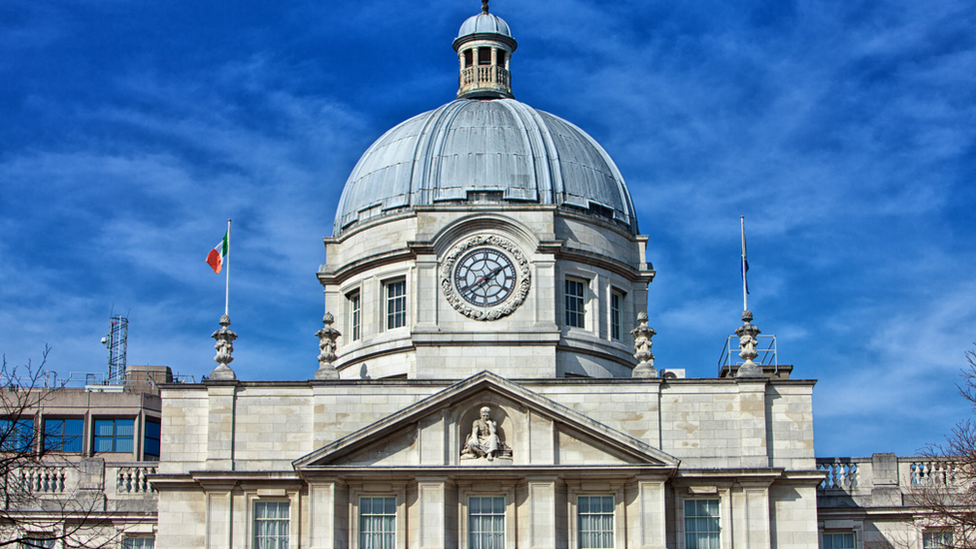Irish budget: €100bn wealth fund to be set up by mid-2030s
- Published
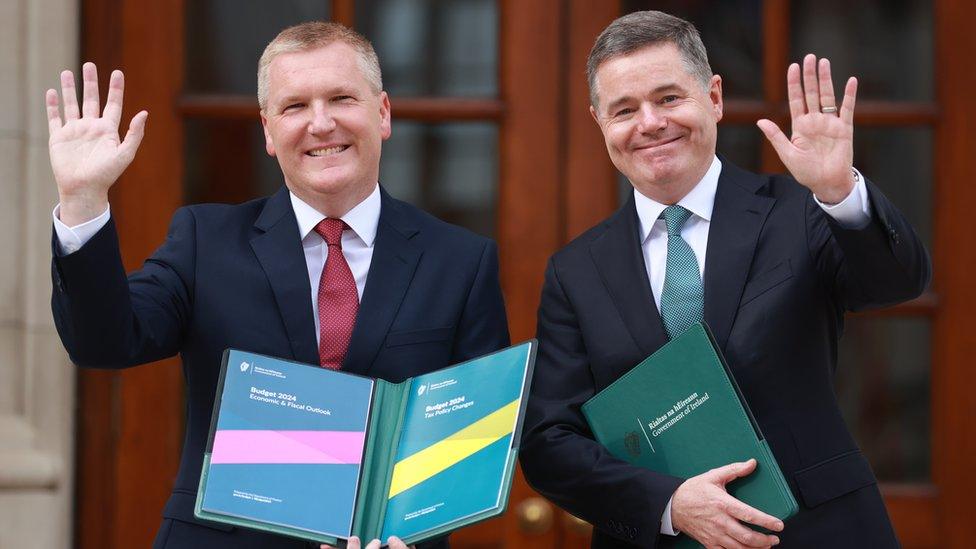
Ireland's finance minister Michael McGrath (left) announced the plans on Wednesday
Ireland is aiming to have a sovereign wealth fund with assets of €100bn (£86bn) by the middle of the 2030s.
Finance Minister Michael McGrath outlined the plan as he delivered a budget on Tuesday.
The fund will be set up using some of the corporation tax windfall that Ireland has received from major global companies.
Mr McGrath also unveiled a multi-billion euro package of spending increases and tax cuts.
Support with childcare costs, a reduction in college fees and credits to help with energy bills were among the measures announced.
'Not a rainy day fund'
Mr McGrath said the sovereign wealth fund, known as the Future Ireland Fund, would be used to "protect living standards and public services".
There will be a second €14bn pot to protect infrastructure spending during economic downturns and invest in climate change measures.
The Future Ireland Fund will be seeded with an initial €4bn from the existing budget reserve.
From 2024 until 2035 an amount equivalent to 0.8% of GDP will be paid in every year, which in 2024 will be around €4.3bn.
Mr McGrath said that, depending on investment returns, the fund could be as large as €100bn by 2035.
Governments can then draw down the fund's investment returns without depleting the original capital.
Mr McGrath said it was not "a rainy-day fund" but was aimed at helping with "costs we know are coming our way".
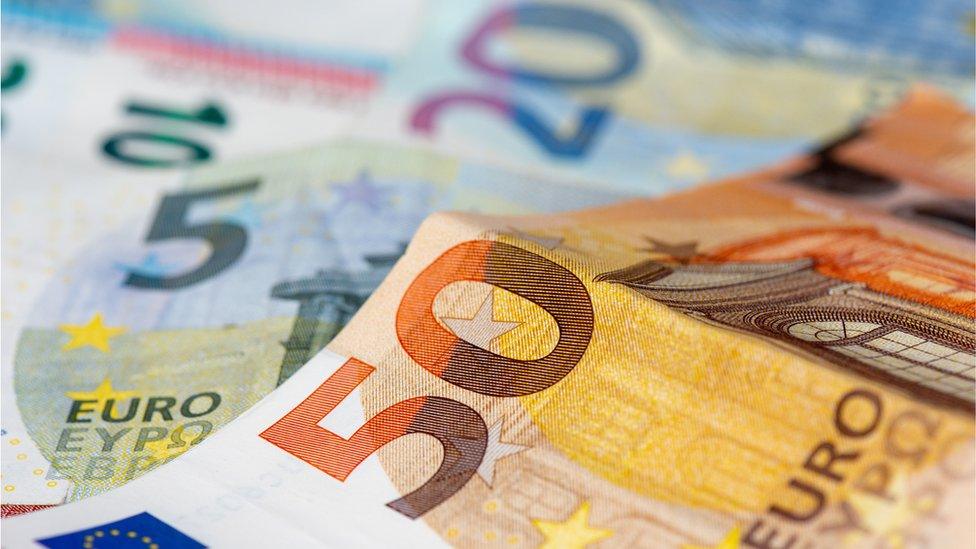
The Republic of Ireland raised €22.6bn in corporation tax in 2022
He said these were mainly related to an aging society, including things like the costs of things like pensions, healthcare and homecare.
He added: "This is a realistic and achievable plan for Ireland. The window of opportunity will not remain open indefinitely and we must seize it now."
The infrastructure, climate and nature fund will be built up over seven years with a €2bn investment each year.
It was welcomed by Friends of the Earth.
Oisín Coghlan, chief executive of the environmental group said it was "a landmark development that can help underpin climate action and nature restoration for years to come".
"It means that whoever is in government after the next election will have funds to invest in getting off fossil fuels and reducing pollution, no matter what happens to tax receipts," he said.
"It's not everything we need to fund a fair and fast transition but it is a substantial down payment.
"It's equally significant that whoever is in government can only spend this money on climate and nature, increasing the chances of the policy consistency that households and businesses need to drive the transition to zero pollution."
Substantial budget surplus
Partial reforms to global tax regulation have had the unintended consequence of large US companies paying tax on much of their global profits in Ireland.
This has seen corporation tax receipts in Ireland balloon from just over €4bn (£3.5bn) in 2014, to more than €22bn (£19.3bn) last year.
The tax take is so large that the country is now able to run a substantial budget surplus.
However, the expectation is that at least some of this revenue is transitory, so it cannot be relied upon to fund permanent spending increases or tax cuts.
Therefore the government has decided to invest much of the money in the two funds.
Mr McGrath also announced a total budget package of €14bn.
Of that €6.4bn is core spending and tax measures with the balance going on one-off or temporary measures.
The main budget plans include:
A minimum wage to jump to €12.70 an hour
A tax break for small landlords
€450 in energy credits over winter
A one-year mortgage interest tax relief for some home owners
Police presence
Security has been increased around the Oireachtas (Irish parliament) for the budget announcement after politicians and staff were unable to leave the grounds last month due to protests.
Over 200 gardaí (Irish police) have been deployed, including unarmed frontline uniform and plain clothed officers, and a number of streets in Dublin's city centre have been closed.
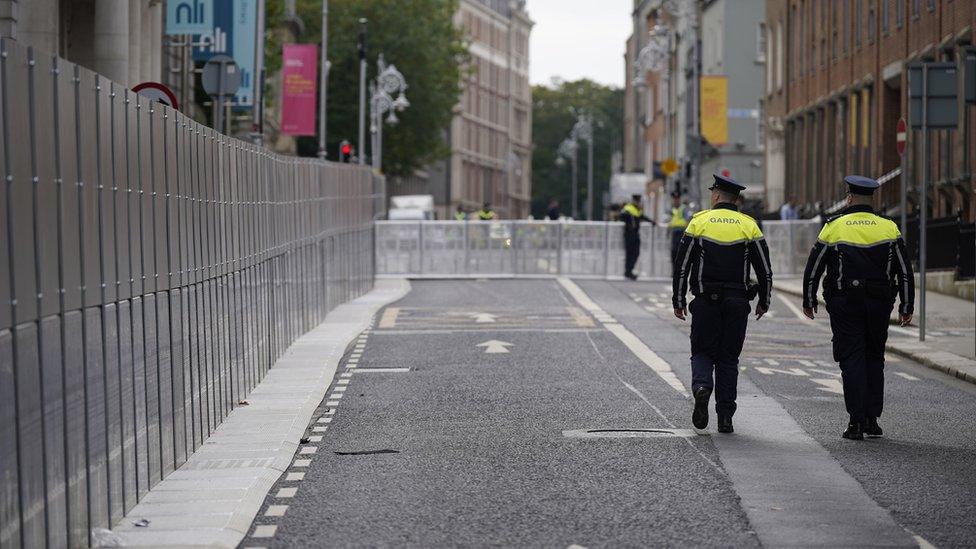
A police operation is under way, including tall fences, as part of the budget announcement
The protest was not about a single issue, but signs protesting Covid vaccines, migration, trans issues and sex education for children were on display.
Gardaí have said there is a constitutional right to the freedom of assemble and of speech, but must be reasonable, proportionate and limited in its extent and duration.
Related topics
- Published23 April 2023
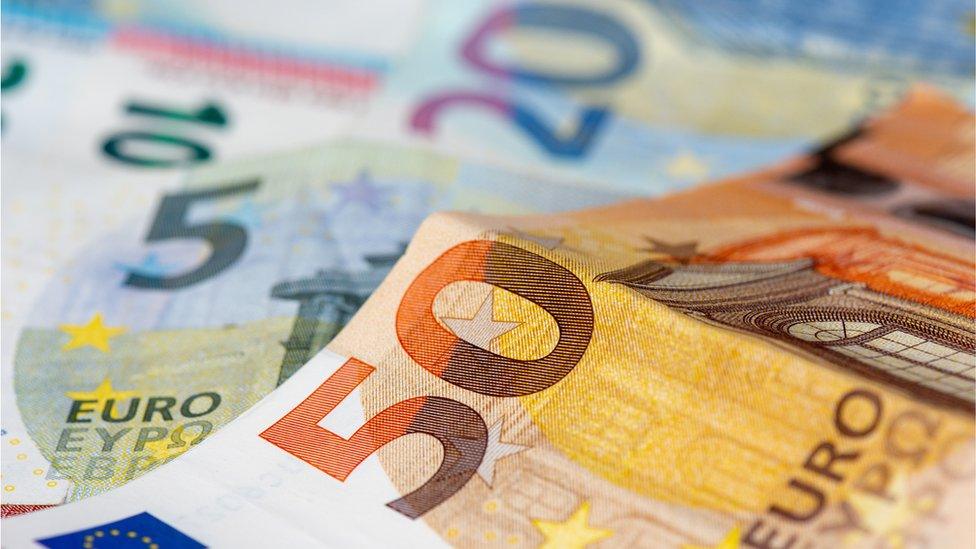
- Published8 April 2021
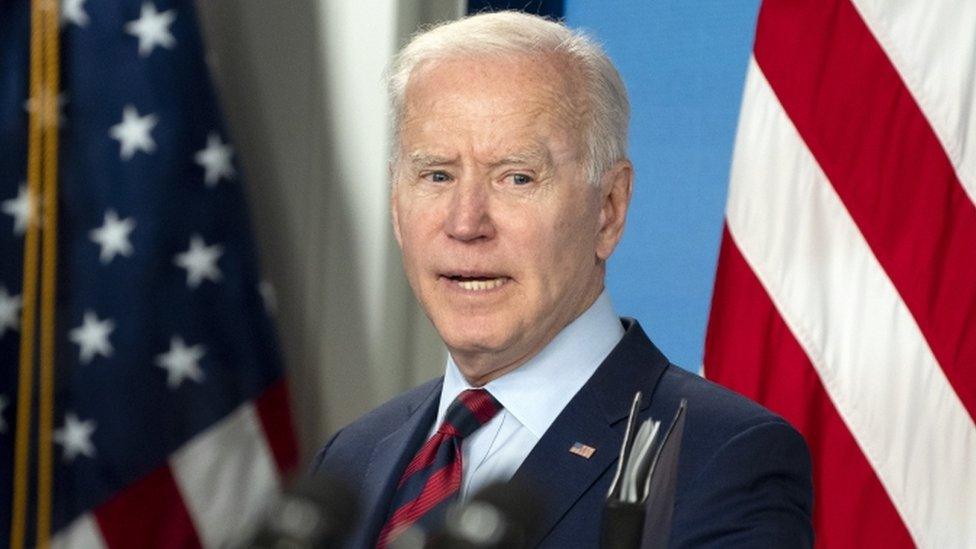
- Published14 May 2023
